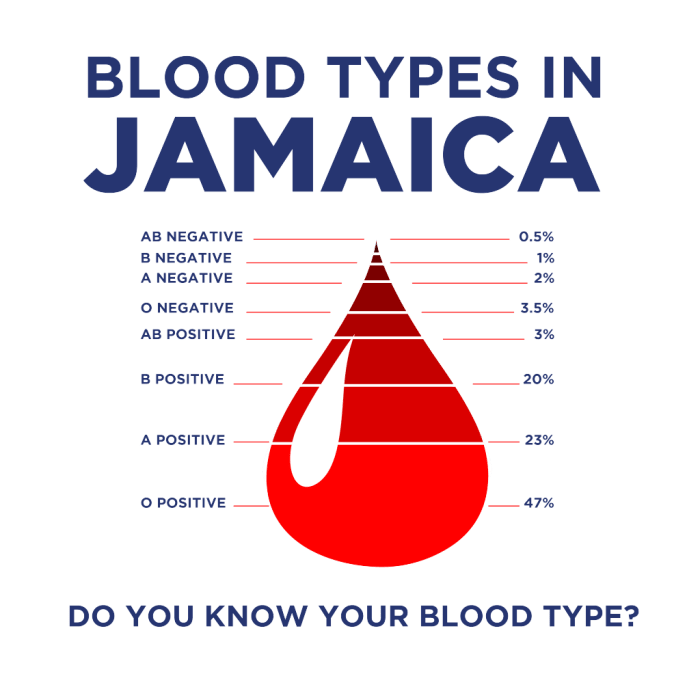Unraveling the mysteries of versatile blood donor crossword clues invites us on an intriguing exploration of blood types, compatibility, and the life-saving significance of blood donation. Embarking on this journey, we delve into the intricacies of human biology, unraveling the secrets of universal donors and their indispensable role in emergency healthcare.
Blood, the elixir of life, holds a captivating story within its composition. Different blood types, governed by the intricate interplay of antigens and antibodies, determine compatibility and guide the safe transfusion of this precious fluid. Understanding these complexities unveils the remarkable universality of certain blood types, empowering them as lifelines in critical situations.
Blood Types
Blood types are inherited characteristics that determine the compatibility of blood transfusions. They are determined by the presence or absence of specific antigens on the surface of red blood cells.
The main blood group systems are the ABO system and the Rh system. The ABO system has four blood types: A, B, AB, and O. The Rh system has two blood types: Rh-positive and Rh-negative.
Blood Compatibility
Blood compatibility is determined by the presence or absence of antibodies in the plasma. Antibodies are proteins that bind to specific antigens. If a person’s plasma contains antibodies against an antigen on the surface of a donor’s red blood cells, the transfusion will cause a reaction.
The ABO system is the most important blood group system for blood transfusions. People with type A blood have anti-B antibodies in their plasma, so they can only receive blood from donors with type A or type O blood. People with type B blood have anti-A antibodies in their plasma, so they can only receive blood from donors with type B or type O blood.
People with type AB blood have no antibodies in their plasma, so they can receive blood from donors with any blood type. People with type O blood have both anti-A and anti-B antibodies in their plasma, so they can only receive blood from donors with type O blood.
Inheritance of Blood Types
Blood types are inherited from both parents. Each parent contributes one allele for each blood group system. The alleles for the ABO system are A, B, and O. The alleles for the Rh system are Rh+ and Rh-.
The following table shows the possible genotypes and phenotypes for the ABO blood group system:
| Genotype | Phenotype |
|---|---|
| AA | A |
| AO | A |
| BB | B |
| BO | B |
| AB | AB |
| OO | O |
Blood Donation: Versatile Blood Donor Crossword Clue
Blood donation is a voluntary process where an individual donates their blood for transfusion to patients in need. It is a crucial aspect of healthcare, as blood is essential for various medical treatments and procedures.
To be eligible for blood donation, individuals must meet certain criteria, including being in good health, meeting weight and age requirements, and having acceptable hemoglobin levels. Before the donation, donors undergo a brief medical screening to assess their suitability.
During the donation process, a sterile needle is inserted into a vein in the donor’s arm, and blood is collected into a sterile bag. The entire process typically takes around 45-60 minutes.
Blood donation is a safe procedure, and strict protocols are followed to minimize any potential risks. These protocols include using sterile equipment, screening donors for infectious diseases, and monitoring donors after the donation to ensure their well-being.
Components of Donated Blood
Donated blood is a valuable resource that can be separated into various components, each with specific uses:
- Red Blood Cells:Carry oxygen throughout the body and are transfused to patients with anemia or blood loss.
- Plasma:The liquid component of blood that contains proteins, electrolytes, and clotting factors; it is used in transfusions for burn victims and patients with clotting disorders.
- Platelets:Small cells that play a crucial role in blood clotting; they are transfused to patients with thrombocytopenia (low platelet count).
Importance of Blood Donation
Blood donation is a vital component of healthcare, providing a lifeline to patients in need of transfusions. It helps save lives and improve the quality of life for those with various medical conditions.
Blood donation is an act of altruism and community involvement. It is a simple yet powerful way to make a positive impact on the lives of others.
Universal Blood Donors

In the realm of blood transfusions, certain individuals possess a unique characteristic that makes their blood universally compatible with recipients of all blood types. These individuals are known as universal blood donors.
Blood Type O Negative, Versatile blood donor crossword clue
The blood type that holds the distinction of being a universal donor is O negative. This blood type is characterized by the absence of both A and B antigens on the surface of its red blood cells and the presence of Rh-negative antigen.
This unique combination makes O negative blood compatible with all other blood types, as it lacks the antigens that would trigger an immune response in recipients.
Significance in Emergency Situations
The universal donor status of O negative blood is of paramount importance in emergency situations where time is of the essence. When a patient’s blood type is unknown or there is no time for cross-matching, O negative blood can be transfused safely without the risk of an immune reaction.
This characteristic makes O negative blood donors invaluable in trauma centers, disaster zones, and military operations, where rapid and effective blood transfusions can save lives.
Crossword Clue Analysis

Crossword puzzles often contain clues that require solvers to think creatively and apply their knowledge of various subjects. When it comes to the concept of blood donation, a versatile blood donor is an individual whose blood can be transfused to a wide range of recipients, regardless of their blood type.
This characteristic makes their blood highly valuable in emergency situations and for people with rare blood types.
To design a crossword puzzle clue that relates to the concept of a versatile blood donor, consider the following:
Clue
- Clue:A universal donor whose blood can save many lives
Possible Answers
- Answer 1:O-negative
- Answer 2:Bombay Phenotype
Blood Transfusions

Blood transfusions are a crucial medical procedure that involves the transfer of blood or blood components from a donor to a recipient. These transfusions are primarily used to treat conditions where the recipient’s body lacks sufficient healthy blood or blood components to function properly.
The process of blood transfusion begins with a comprehensive assessment of the recipient’s condition and blood type. Compatibility testing is performed to ensure that the donor’s blood is compatible with the recipient’s blood type and immune system. This testing minimizes the risk of adverse reactions, such as transfusion reactions or hemolytic transfusion reactions, which can occur when incompatible blood is transfused.
During the transfusion, the donor’s blood is carefully administered into the recipient’s bloodstream through an intravenous line. The rate of transfusion is closely monitored to prevent circulatory overload or other complications. Throughout the procedure, the recipient is closely observed for any signs of transfusion reactions, such as fever, chills, or difficulty breathing.
Types of Blood Transfusions
There are various types of blood transfusions, each tailored to specific medical conditions:
- Whole blood transfusion:Involves the transfusion of all blood components, including red blood cells, white blood cells, platelets, and plasma.
- Red blood cell transfusion:Used to treat anemia, where the body lacks sufficient healthy red blood cells to carry oxygen effectively.
- Platelet transfusion:Indicated for conditions with low platelet counts, such as thrombocytopenia, where the body lacks sufficient platelets to promote blood clotting.
- Plasma transfusion:Replaces missing or deficient plasma proteins, which are essential for maintaining blood volume and regulating various bodily functions.
Role of Blood Banks
Blood banks play a vital role in ensuring the safety and availability of blood for transfusions. These facilities collect, process, and store donated blood, ensuring that it meets strict quality and safety standards. Blood banks also perform compatibility testing and prepare blood components for transfusions.
By maintaining a safe and reliable supply of blood, blood banks enable timely and effective treatment for patients in need of blood transfusions. Their efforts contribute significantly to improving patient outcomes and saving lives.
Answers to Common Questions
What is the universal blood donor type?
O negative
Why is O negative blood considered universal?
It lacks A and B antigens, making it compatible with all blood types.
What is the importance of blood donation?
It replenishes blood supplies for transfusions, surgeries, and emergencies.